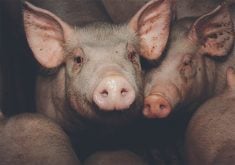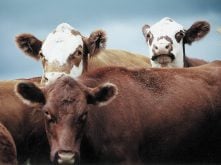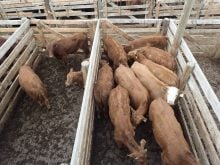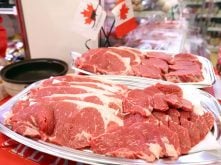To kick off the 99th Calgary Bull Sale, auctioneer Bob Balog loosened his tie, took off his stetson and warned the capacity crowd to pay attention, because this was going to be one fast-paced sale.
Within half an hour a perspiring Balog had sold the grand champion and reserve champion Herefords for $20,000 and $25,000 respectively, as well as another 30 lots of solidly built range bulls.
The format for Canada’s longest consecutive running bull sale was shortened by a day. It was a rapid-fire sale that moved 499 range bulls through the ring in record time for an overall average of $3,583, up from the 1998 average of $3,425 on 491 bulls.
Read Also
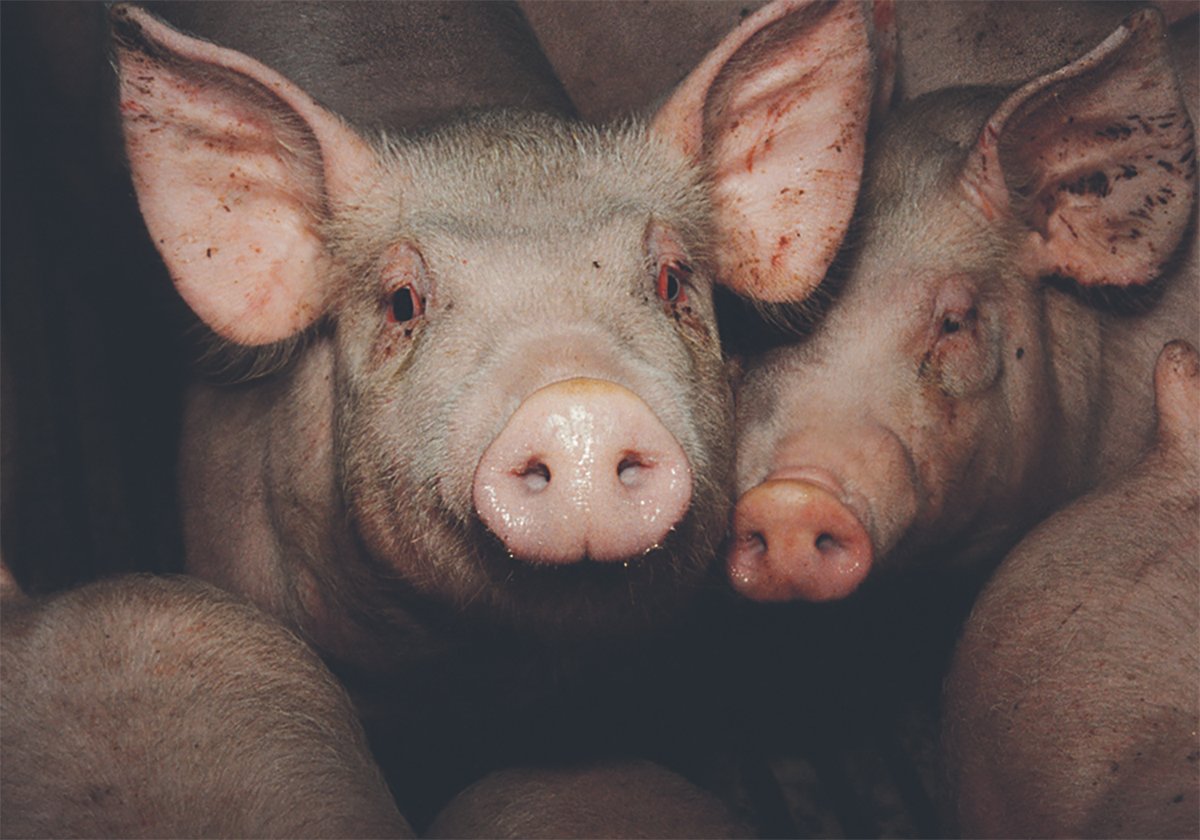
The Western Producer Livestock Report – October 30, 2025
Western Producer Livestock Report for October 30, 2025. See U.S. & Canadian hog prices, Canadian bison & lamb market data and sales insights.
For the Parrent and Corbeill families, the trip to town was worth it.
Norm and Joanne Parrent of Clyde, Alta., had their fourth grand champion Hereford bull in five years. For the last 10 years they have hauled 10 bulls to Calgary and watched them sell to commercial cattle producers and seedstock producers from Canada and the United States.
Besides finding fresh genetics, American buyers had to spend only $668.81 for every $1,000 Canadian.
Breeders like Parrent, who runs Jonomn Herefords, are enjoying a renewed popularity in Bri-tish breeds.
“The nineties Hereford is a completely new product,” said Parrent, who has been raising Herefords since he was an 11-year-old kid with a 4-H project. Udders, feet and overall size has improved to give cattle producers a better package of bull power.
Brad Corbeill of Cluny, Alta., who led out the reserve champion to the tune of $25,000, agrees. His father, Armand, has been in the Hereford breeding business for 50 years.
The Corbeill family started coming to Calgary last year. When their sales string averaged $6,500 last year they decided to try their luck again.
They see a strong demand for hardy Herefords in southeastern Alberta and southwestern Saskatchewan.
“They’re good grass converters,” Corbeill said.
“There’s lots of black in the country but most cattlemen still want a white face.”
Over in the Angus ring, the cowboys were equally excited about the blacks. The crowd was reaching the rafters to watch 143 Angus sell for $529,800 for an average of $3,705.
The high selling Angus was the reserve grand champion, which sold for $11,400. Consigned by Wayne Sibbald, this red bull sold to Top Red Angus of Eastend, Sask. The grand champion was from Lorenz Angus Farms of Markerville, Alta., and went for $9,000 to Remitall Cattle Co., Olds, Alta.
In the limelight
Show judge Levi Jackson of Sedley, Sask., who raises Red Angus, agreed the breed is enjoying renewed popularity in the countryside.
“It’s at the point where it’s almost explosive,” he said. However, he compared this old British breed to the movie star who experiences overnight success. The breed has been actually working hard for a number of years to reinject the Angus influence into the North American beef herd.
“Commercial people find the Angus female is an outstanding commercial cow. People want Angus influence in their cow herd,” he said.
For him, all the qualities of a good bull can be found in this breed. When he judges any breed he looks for sound feet and legs, a clean sheath, as well as better than average testicular development. He wants enough muscle covering to hold the animal’s framework together smoothly.
An international judge, Jackson has been to shows all over North America and was invited to Sweden where he evaluated a number of breeds in a supreme champion show.



